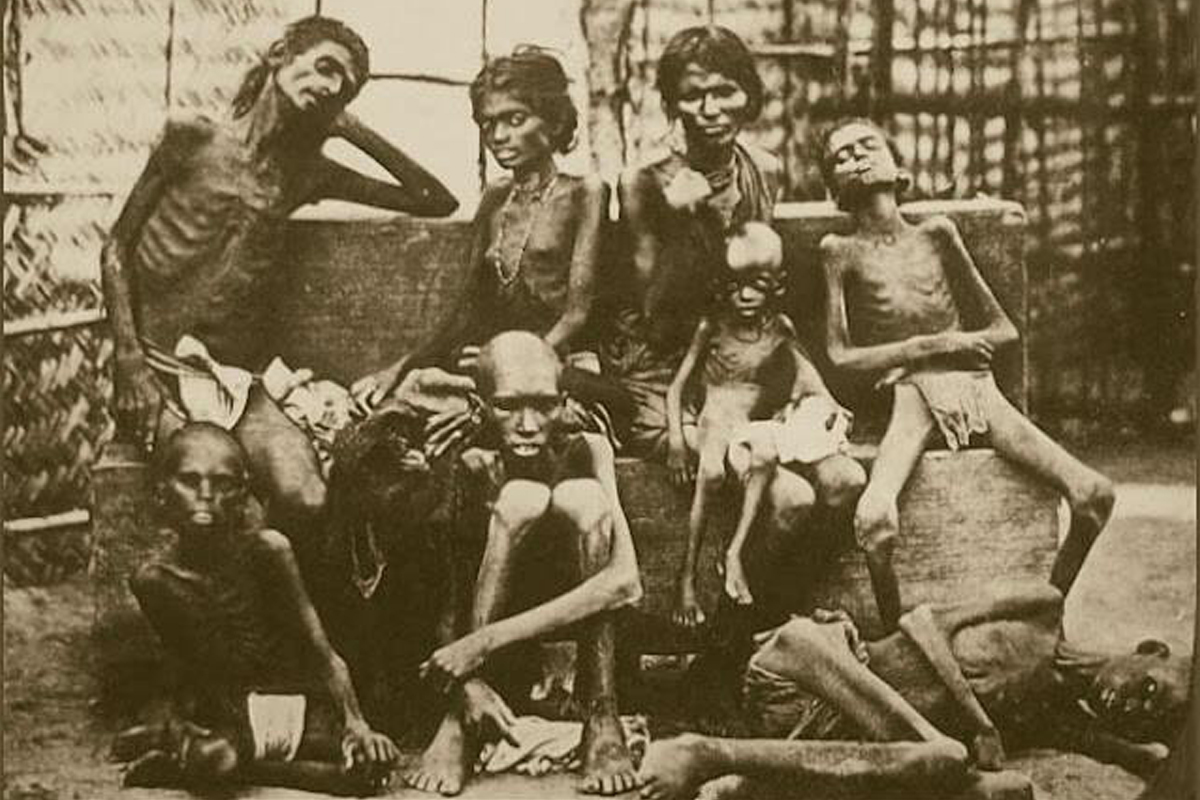Bengal, a province of plenty was ravaged by famine more than once. If Bankim Chandra Chattopadhaya, the literary lion drew inspiration for “Anandamath” from the 1776 Great Bengal Famine, not many significant works can be traced to the other one which made people from the countryside trek to the cities and beg for rice starch instead of rice as even the staple food of the Bengal populace was scarce even in well to do households.
Food supplies to Bengal were reduced in the years preceding 1943 by natural disasters, outbreaks of infections in crops and the fall of Burma – now Myanmar – which was a major source of rice imports, into Japanese hands. But there should still have been enough supplies to feed the region, and that the mass deaths came about as a combination of wartime inflation, speculative buying and panic hoarding, which together pushed the price of food out of the reach of poor Bengalis.
Advertisement
More recent studies, have argued the famine was exacerbated by the decisions of Winston Churchill’s wartime Cabinet in London. The Cabinet was warned repeatedly that the exhaustive use of Indian resources for the war effort could result in famine, but it opted to continue exporting rice from India to elsewhere in the empire. Rice stocks continued to leave India even as London was denying urgent requests from India’s viceroy for more emergency wheat supplies in 1942-43. Churchill has been quoted as blaming the famine on the fact Indians were “breeding like rabbits”, and asking how, if the shortages were so bad, Mahatma Gandhi was still alive.
Britain’s “denial policy” in the region, in which huge supplies of rice and thousands of boats were confiscated from coastal areas of Bengal in order to deny resources to the Japanese army in case of a future invasion which led to what is known as “Ponchasher Monnantwar”. A book bearing the same title has hit the stands recently penned by a man who is much in news despite having passed away before his political career could come to fruition. The youngest vice-chancellor of Calcutta University, son of eminent jurist Sir Asutosh Mookherjee, a pillar of Hindu Mahasabha and a lion in Parliament, Syama Prasad Mookherjee was in the government when the famine broke out.
Never a person who would do anything by halves, he flung himself in relief work for the famished, dead and dying. The 129- page hardback is an account of his endeavour and the hurdles it had to cross to feed the hungry. Reprinted by Sutradhar, it makes fascinating reading as it focuses on the life and times of a controversial leader fighting heavy odds and sometimes earning unwarranted criticism for his efforts to feed the famished.
















